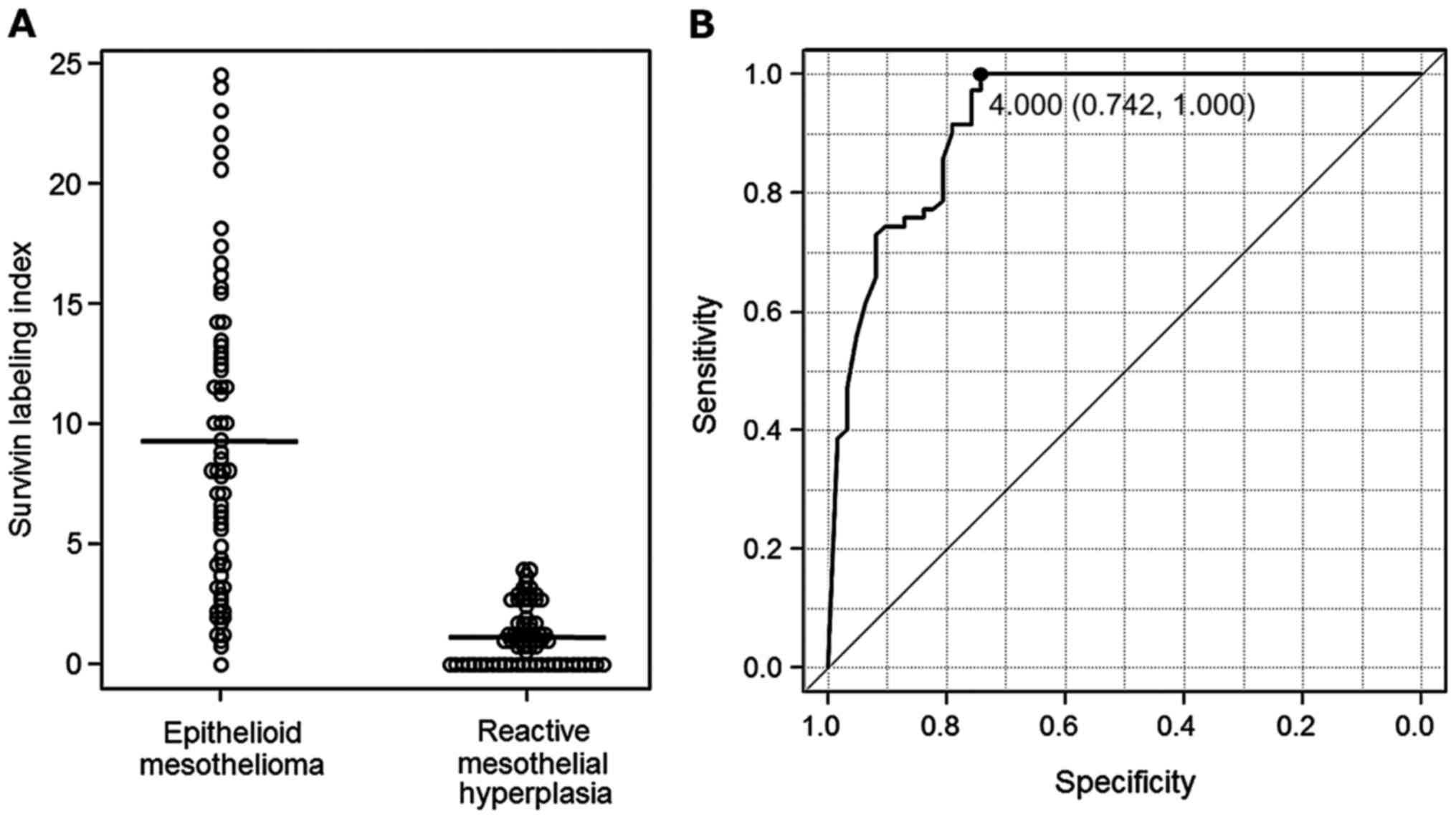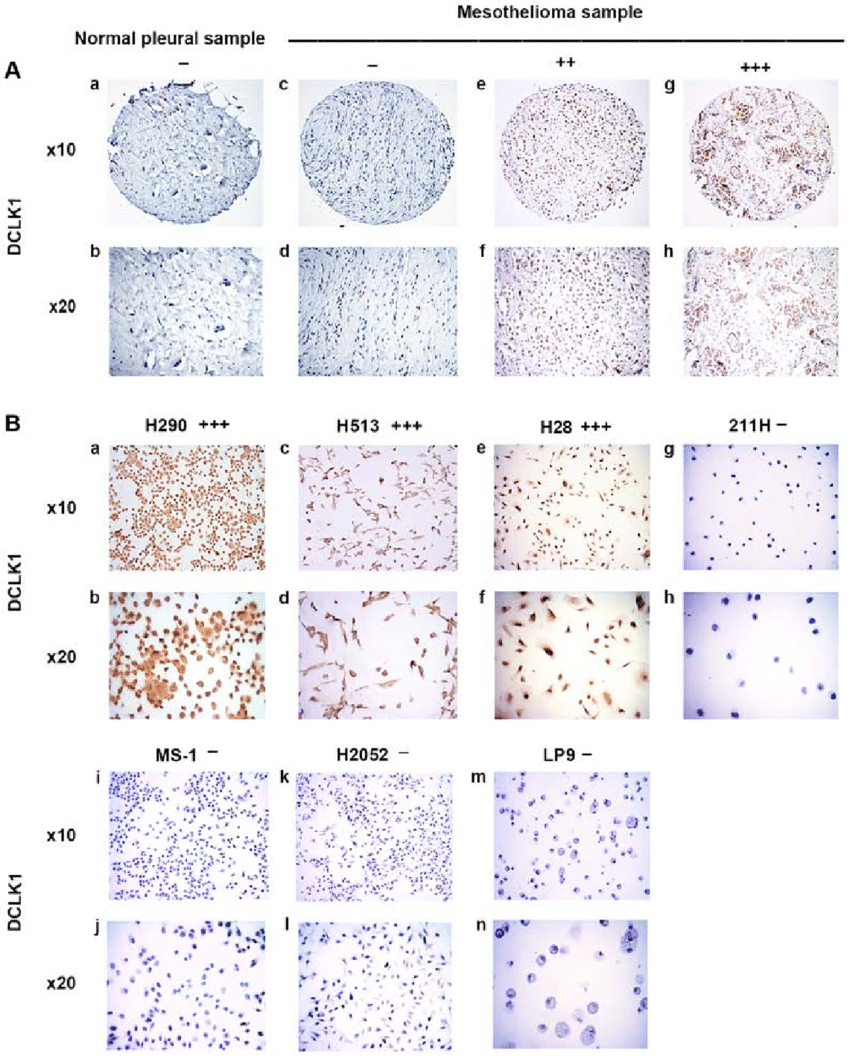A single center experience of 244 cases. The distinction between reactive mesothelial hyperplasia mh and malignant mesothelioma mm may be very difficult based only on histologic and morphologic findings.

Table 1 From Sensitivity And Specificity Of Immunohistochemical Markers Used In The Diagnosis Of Epithelioid Mesothelioma A Detailed Systematic Analysis Using Published Data Semantic Scholar
An antibody is a natural substance the immune system sends out to inhibit a foreign invader.

Mesothelioma immunohistochemistry. Immunohistochemistry in peritoneal mesothelioma. Early diagnosis and accurate prognostication remain problematic. Germline bap1 mutation has been associated with early onset and less aggressive disease compared with sporadic mm.
Immunohistochemistry or ihc is a laboratory test that locates proteins in the cells of a tissue sample by using antibodies that typically bind to the protein being sought out. Because of this there is no standard set of markers for mesothelioma. Immunohistochemistry ihc has become an invaluable tool in the differentiation of histological mesothelioma subtypes with the use of antigens which are substances that trigger the production of antibodies by the immune system.
Of 217 cases circulated among all members of the uscanadian mesothelioma reference panel there was some disagreement about whether the process was benign or malignant in 22 of cases. Application of a targeted panel of mesothelial a. Immunohistochemistry plays an indispensable role in accurate diagnosis of malignant mesothelioma particularly in morphologically challenging cases and in biopsy and cytology specimens where tumor architecture is difficult or impossible to evaluate.
Most published immunohistochemistry data are more applicable to pleural than to peritoneal mesothelioma. By locating distinct protein antigen markers within mesothelioma tumor cells a diagnosis can be made that is far more accurate than diagnoses using imaging. Sporadic bap1 mutations are common and are associated with improved survival.
Calretinin is a calcium binding protein that occurs in various types of cells in the body. Mesothelioma and immunohistochemistry immunohistochemistry more commonly referred to as ihc helps doctors and scientists differentiate between histological subtypes of mesothelioma through the use of antigens which help to trigger the production of antibodies from the immune system. Malignant mesothelioma mm is an aggressive malignancy of the serosal membranes.
Bap1 is a tumour suppressor gene commonly mutated in mm. Diagnosis of malignant mesothelioma is more common in the chest than it is in the abdomen. A comparative study of epithelioid mesothelioma and lung adenocarcinoma am j surg pathol.
Immunohistochemistry for mesothelioma is still developing as a science and different pathologists have experience with using different antibodies. Tandon rt jimenez cortez y taub r borczuk ac. The immunohistochemical diagnosis of mesothelioma.
Author nelson g ordonez 1 affiliation 1 university of texas texas 77030. 1 frank invasion is regarded as the most.

Role Of P16 Deletion And Bap1 Loss In The Diagnosis Of Malignant Mesothelioma Liu Journal Of Thoracic Disease

Calretinin Sp13 Diagnostic Biosystems Immunohistochemistry Primary Antibodies Monoclonal Antibodies Polyclonal Antibodies Fitc Antibodies Automated Staining Instrumentation Mouse And Rabbit Detection Systems Multiplex Kits Ancillaries

Inflammation Related Il1b Il1r Signaling Promotes The Development Of Asbestos Induced Malignant Mesothelioma Cancer Prevention Research
Https Academic Oup Com Ajcp Article Pdf 112 1 75 24980046 Ajcpath112 0075 Pdf
Author Abulkheir Eman Loay Hussein Title Mesothelioma Clinicopathologic And Immunohistochemical Study

Immunohistochemistry With Patient Mesothelioma Tissue Sections Stained Download Scientific Diagram

Utility Of Survivin Bap1 And Ki 67 Immunohistochemistry In Distinguishing Epithelioid Mesothelioma From Reactive Mesothelial Hyperplasia
